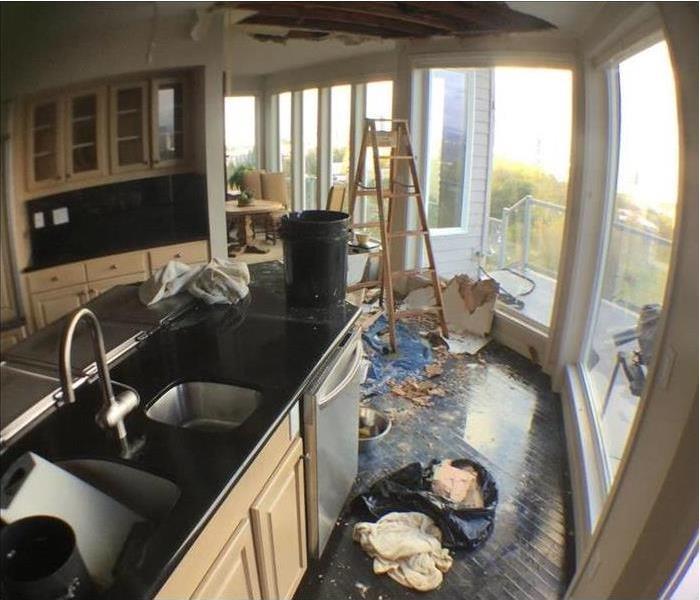Florida hurricane preparedness tips
6/19/2019 (Permalink)
Hurricanes hit hard in Florida. Especially in the East Coast, hurricane damage can be severe. Having a hurricane preparedness plan will help to keep you and your loved one's safe and reduce the damage to your property.
First, keep in mind that hurricane season in the Atlantic Ocean goes from June 1 to November 30. While hurricanes are most active in September, they could still happen at any time of the season. They also can affect areas more than 100 miles inland, so even if you’re in an inland city you still need to be prepared.
Hurricane preparedness is composed of different stages. In each of them, there are different steps that should be taken.
Basic preparedness: even before there is a hurricane alert, there are some things you should know and do.
- Assess your area’s risk of hurricanes, storm surges, flooding and winds.
- Keep a list of emergency contacts, such as your city/county/state’s government, emergency services and local hospitals.
- Sign up for your community’s warning system.
- Become familiar with evacuation zones and routes.
- Get to know the closest shelter location, such as a FEMA safe room or an ICC 500 storm shelter.
- Review insurance policies.
- If you have pets, make a plan for them, too.
When a hurricane is 36 or more hours away from arriving:
- Prepare an emergency kit with food and water enough for at least three days, a flashlight, medication, batteries, cash and first aid supplies. If you have pets, keep an emergency kit for them as well.
- Review your evacuation route and shelters with your family in order for everyone to be ready.
- Create a communications plan with your family; preferably use text messages or social media as phone lines may be down or too busy.
- Keep your car in good condition and with the gas tank full, and store it with emergency supplies and a change of clothes.
When a hurricane is 18 to 36 hours away from arriving:
- Bookmark your city’s or county’s website for quick access to storm updates and emergency instructions.
- Address outdoor objects that could become projectiles in the wind: bring inside loose, lightweight objects and anchor heavy objects that would be unsafe to bring inside.
- Trim or remove trees that are close enough to fall on your property.
- Cover all your home’s windows. If you haven’t installed hurricane shutters, cover them with 5/8” exterior grade or marine plywood.
When a hurricane is 6 to 18 hours away from arriving:
- Turn on your TV or radio to a news station and/or check your city’s or county’s website every 30 minutes for updates and emergency instructions.
- Charge your cellphone so it will have a full battery when the hurricane arrives.
When a hurricane is 6 or fewer hours away from arriving:
- If you’re in an area recommended for evacuation, go to your local shelter. If you’re not, plan to stay at home or wherever you are at the moment. In any case, let your family and friends know where you will be.
- If you are at risk for flash flooding, watch for warning signs such as heavy rain.
- Close storm shutters and stay away from windows.
- Turn your fridge to the lowest temperature and open only when strictly necessary. This is in order to keep your food cold in case the power goes out.
During the hurricane:
- If you’re told to evacuate, do so immediately.
- If you’re not able to go to a FEMA safe house or ICC 500 storm shelter, take refuge in a small and windowless room or hallway in the lowest floor of the building that is not subject to flooding.
- If you’re trapped in a flooding building, go to the highest level. Do not climb into a closed attic.
- Only use generators outdoors and away from windows.
- Do not walk, swim or drive through flood waters. Turn around and go away.
After the hurricane has passed, you still need to be careful. Keep on surveilling communication channels, such as TV, radio and the city’s website, for information and special instructions. Also, be careful during cleanup, do not touch electrical equipment and avoid wading in flood water.
To ensure better results in restoring your property back to normal, contact an emergency cleanup service such as SERVPRO of Martin County. We will assess the damage and repair it to leave everything "Like it never even happened."






 24/7 Emergency Service
24/7 Emergency Service